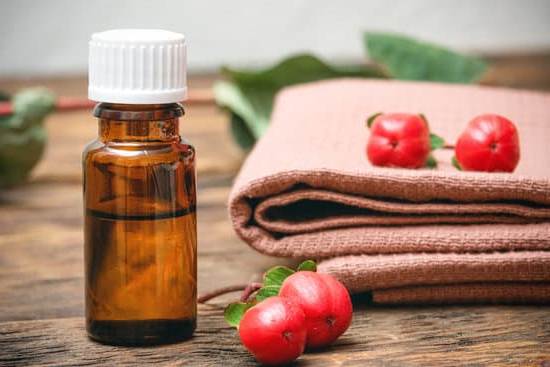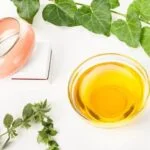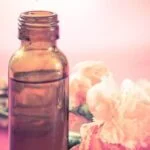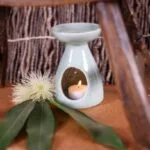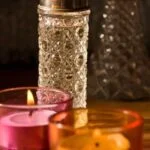Lavender, known for its soothing and calming properties, is a popular choice in the world of aromatherapy. This article explores the question: is lavender good for aromatherapy? With its delightful fragrance and potential therapeutic benefits, lavender has been utilized for centuries as a natural remedy for various ailments.
The history of lavender in aromatherapy dates back to ancient times when it was used by Egyptians, Greeks, and Romans for its healing properties. Lavender essential oil is extracted from the flowers of the lavender plant through steam distillation, capturing its aromatic essence that is believed to promote relaxation and well-being.
Using lavender in aromatherapy can offer a wide range of benefits. From reducing stress and anxiety to improving sleep quality, this versatile herb is a staple in many households for its ability to create a tranquil atmosphere. Stay tuned as we delve deeper into the advantages of incorporating lavender into your daily aromatherapy routine.
History of Lavender in Aromatherapy
Lavender has been used in aromatherapy for centuries, with its calming and soothing properties making it a popular choice for promoting relaxation and overall well-being. The history of lavender in aromatherapy dates back to ancient civilizations such as the Egyptians, Greeks, and Romans, who recognized its therapeutic benefits and used it for various purposes.
In fact, the name “lavender” is believed to have originated from the Latin word “lavare,” which means “to wash,” highlighting its use in bathing rituals and perfumes.
Early Uses of Lavender in Aromatherapy
One of the earliest recorded uses of lavender in aromatherapy is by the Ancient Egyptians, who used it for embalming and cosmetics. They also discovered its aromatic properties and used it in their temples for ceremonies and rituals. The Greeks and Romans valued lavender for its healing properties, using it to alleviate headaches, insomnia, and anxiety. Additionally, during the Renaissance period, lavender became a popular ingredient in medicinal remedies due to its antiseptic and anti-inflammatory properties.
Lavender’s Symbolism Throughout History
Beyond its therapeutic uses, lavender also holds symbolic significance in various cultures throughout history. In medieval times, lavender was associated with purity and devotion, often used in religious ceremonies and weddings. During the Victorian era, lavender symbolized refinement and grace, often used in potpourri blends to freshen homes. Today, lavender continues to be a versatile herb that is not only prized for its aromatic qualities but also revered for its rich history steeped in tradition and symbolism.
Benefits of Using Lavender for Aromatherapy
Lavender is a versatile and popular herb with a long history of use in aromatherapy. It is known for its calming and soothing properties, making it an excellent choice for relaxation and stress relief.
One of the main benefits of using lavender in aromatherapy is its ability to promote a sense of calmness and relaxation, which can help reduce anxiety and improve sleep quality. The scent of lavender has been used for centuries to create a peaceful atmosphere and enhance overall well-being.
To experience the benefits of lavender in aromatherapy, there are various ways to incorporate this fragrant herb into your daily routine. Here are some popular methods of using lavender for aromatherapy:
- Essential Oils: Lavender essential oil is commonly used in aromatherapy due to its concentrated form and ease of use. You can add a few drops of lavender oil to a diffuser or mix it with a carrier oil for massage therapy.
- Sachets: Lavender sachets filled with dried lavender flowers can be placed in drawers or closets to infuse your clothes with a pleasant aroma. They also help repel moths and insects naturally.
- Diffusers: Electric or reed diffusers allow you to enjoy the therapeutic benefits of lavender essential oil by dispersing the scent throughout a room. This method is convenient for creating a calming ambiance at home or in the office.
Numerous studies have supported the effectiveness of lavender in aromatherapy for promoting relaxation, reducing stress levels, and improving sleep quality. Research has shown that inhaling the scent of lavender can have a positive impact on mood, cognitive performance, and overall well-being. As such, incorporating lavender into your daily self-care routine through aromatherapy may contribute to better mental health and emotional balance.
Different Ways to Use Lavender in Aromatherapy (Essential Oils, Sachets, Diffusers)
Lavender is a versatile herb that has been used for centuries in aromatherapy to promote relaxation, reduce anxiety, and improve sleep quality. One of the most popular ways to incorporate lavender into aromatherapy is through the use of essential oils.
Lavender essential oil is extracted from the flowers of the lavender plant and can be used in a variety of ways, such as diffusing it in a room, adding a few drops to bath water, or mixing it with a carrier oil for massage.
Another way to enjoy the benefits of lavender in aromatherapy is by using sachets. Sachets are small bags filled with dried lavender flowers or buds that can be placed in drawers, closets, or under pillows to impart a calming scent. The gentle aroma of lavender can help promote relaxation and improve sleep quality. Additionally, sachets are easy to make at home using dried lavender flowers and fabric pouches.
For those who prefer a more continuous diffusion of lavender fragrance, diffusers are an excellent option. Diffusers are devices that disperse essential oils into the air, allowing you to enjoy the therapeutic benefits of lavender throughout your home or workspace. There are different types of diffusers available, including ultrasonic diffusers, nebulizing diffusers, and heat diffusers, each offering unique benefits for dispersing lavender essential oil effectively.
| Lavender Aromatherapy Products | Benefits |
|---|---|
| Essential Oils | Can be easily customized for various uses |
| Sachets | Provide long-lasting fragrance in enclosed spaces |
| Diffusers | Easy way to disperse aroma throughout a room or area |
Research Evidence Supporting Lavender’s Effectiveness in Aromatherapy
Lavender is one of the most popular essential oils used in aromatherapy, and for good reason. Numerous studies have been conducted to examine the effectiveness of lavender in promoting relaxation and reducing stress and anxiety levels. Research has shown that the aromatic compounds found in lavender have a calming effect on the nervous system, making it an ideal choice for those looking to unwind after a long day or ease feelings of tension and worry.
One study published in the International Journal of Psychiatry in Clinical Practice found that inhaling lavender essential oil can significantly reduce anxiety levels in patients undergoing dental treatment. Another study published in the Journal of Alternative and Complementary Medicine discovered that using lavender oil during massage therapy sessions can help decrease cortisol levels, which is a hormone associated with stress.
These findings suggest that incorporating lavender into aromatherapy practices can be beneficial for not only relaxation but also for improving overall well-being.
Furthermore, research has also shown that lavender aromatherapy can aid in improving sleep quality. A study conducted at Wesleyan University found that participants who slept in a room with a diffuser releasing lavender oil experienced increased deep sleep stages compared to those who did not.
This indicates that the soothing scent of lavender can promote a restful night’s sleep by creating a calming environment conducive to relaxation. The evidence supporting the effectiveness of lavender in aromatherapy continues to grow, reinforcing its reputation as a staple essential oil for promoting emotional balance and relaxation.
How Lavender Aromatherapy Can Help With Stress, Anxiety, and Sleep
Lavender is a versatile herb widely used in aromatherapy for its calming and relaxing properties. One of the key benefits of lavender aromatherapy is its ability to help alleviate stress, anxiety, and improve sleep quality. The soothing aroma of lavender essential oil has been known to promote feelings of relaxation and calmness, making it an ideal choice for those looking to unwind after a long day or combat everyday stressors.
There are several ways lavender can be incorporated into your aromatherapy routine to help with stress, anxiety, and sleep. Some popular methods include using lavender essential oils in diffusers, adding a few drops to a warm bath before bedtime, or creating lavender-scented sachets to place under your pillow. The gentle scent of lavender can create a peaceful atmosphere that encourages deep breathing and relaxation, leading to a more restful night’s sleep.
In addition to its calming effects on the mind and body, research has shown that lavender aromatherapy may also have a positive impact on mental health. Studies have suggested that inhaling the scent of lavender essential oil can help reduce symptoms of anxiety and depression by promoting feelings of well-being and tranquility.
Whether you are looking to ease tension during a hectic day, manage symptoms of anxiety, or improve your sleep patterns, incorporating lavender into your aromatherapy practice may offer natural relief and support overall wellness.
- Use lavender essential oil in a diffuser before bedtime to create a peaceful environment
- Add a few drops of lavender oil to your bath water for a relaxing soak
- Create homemade sachets with dried lavender flowers to place under your pillow for better sleep
Tips for Choosing High-Quality Lavender Products for Aromatherapy
When it comes to using lavender for aromatherapy, selecting high-quality products is essential to fully reap its benefits. With a plethora of lavender products available in the market, it can be overwhelming to choose the right one for your aromatherapy needs. Here are some tips to help you select top-notch lavender products for your aromatherapy sessions.
First and foremost, look for organic or wildcrafted lavender products. Organic lavender is grown without synthetic pesticides, herbicides, or fertilizers, resulting in a purer and more potent product. On the other hand, wildcrafted lavender is harvested from plants that grow naturally in their native habitats, ensuring that only the best quality lavender is used for aromatherapy purposes.
Another crucial factor to consider when choosing lavender products for aromatherapy is the extraction method used to derive the essential oils. Steam distillation is the preferred method for extracting lavender essential oil as it ensures that the therapeutic compounds remain intact. Cold-pressing methods may be used for extracting lavender oil from citrus fruits but are not suitable for lavender plants.
Lastly, always check the sourcing and production practices of the brand you are purchasing from. Opt for companies that prioritize sustainability, transparency, and ethical practices in their production process. By choosing high-quality lavender products from reputable brands, you can ensure that your aromatherapy experience is safe, effective, and truly beneficial for your well-being. Lavender truly shines when it comes to aiding relaxation and promoting better sleep quality through its soothing properties”.
Precautions and Side Effects of Using Lavender in Aromatherapy
Allergic Reactions
While lavender is generally considered safe for most people, it is important to note that allergic reactions can occur in some individuals. Symptoms of an allergic reaction to lavender aromatherapy may include skin irritation, redness, itching, or swelling. It is essential to do a patch test before using lavender products on a larger area of the skin to ensure that you are not sensitive to this essential oil.
Interactions With Medications
It is important to be cautious when using lavender in aromatherapy if you are taking certain medications. Lavender may interact with some medications, including central nervous system depressants and sedatives. If you are currently taking any prescription medications, it is advisable to consult with a healthcare professional before incorporating lavender aromatherapy into your routine to avoid any potential interactions.
Photosensitivity
One lesser-known side effect of using lavender in aromatherapy is photosensitivity. This means that some individuals may experience an increased sensitivity to sunlight when using products containing lavender essential oil. To prevent any adverse reactions, it is recommended to avoid direct sunlight exposure after applying lavender products to the skin. Additionally, consider using sunscreen or protective clothing when outdoors after using lavender aromatherapy products.
Conclusion
In conclusion, it is evident that lavender is indeed good for aromatherapy. With its rich history dating back centuries and a plethora of benefits, lavender has become a staple in the world of aromatherapy. From stress relief to promoting better sleep, lavender essential oils, sachets, and diffusers offer a natural and effective way to enhance overall well-being.
Research studies have consistently supported the effectiveness of lavender in aromatherapy, further solidifying its reputation as a powerful tool for relaxation and mental clarity. The soothing scent of lavender can help alleviate symptoms of stress, anxiety, and sleep disorders, making it a versatile option for those seeking natural remedies for these common issues.
When incorporating lavender into your aromatherapy routine, it is important to choose high-quality products to ensure maximum benefits. Whether using essential oils in a diffuser or creating homemade sachets for relaxation purposes, selecting reputable sources can make all the difference in the quality of your aromatherapy experience.
Always be mindful of precautions and potential side effects when using lavender in aromatherapy, especially if you have specific health conditions or sensitivities. Overall, lavender aromatherapy offers a holistic approach to improving health and well-being that is worth exploring for anyone looking to incorporate natural remedies into their daily routine.
Frequently Asked Questions
Is Lavender Aromatherapy Safe?
Lavender aromatherapy is generally considered safe for most people when used appropriately. However, it’s important to note that some individuals may experience skin irritation or allergic reactions when using lavender oil directly on the skin.
What Are the Side Effects of Lavender Aromatherapy?
When using lavender aromatherapy, some potential side effects to be aware of include headaches, skin irritation, and nausea in certain individuals. It’s always recommended to do a patch test before using lavender oil on a larger area of the body to avoid any adverse reactions.
Is Lavender Good to Inhale?
Inhaling lavender is often associated with relaxation and stress relief due to its calming properties. The scent of lavender has been shown to help improve sleep quality and reduce anxiety levels in some studies.
It can be safely inhaled through diffusers, sprays, or even by adding a few drops of essential oil to a bowl of hot water for steam inhalation.

Are you looking for a natural way to improve your health and wellbeing?
If so, aromatherapy may be the answer for you.

